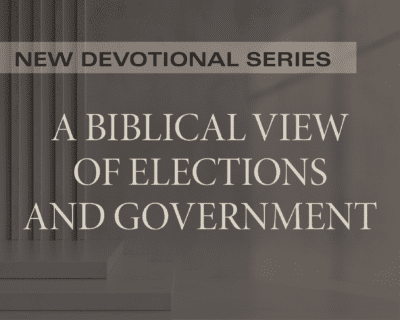
Christian contentment is not a natural state, but a mystery whose secrets must be learned. It is the duty, glory, and excellence of a Christian to be well-skilled in this mystery.
These are only preliminary, unedited outlines and may differ from Andy’s final message.
In 1990, an obscure farmer was working his land near the Abaetezinho River in a region known as Alto Paranaiba in Brazil. He went down to the river and noticed a large, rough, gemstone in the mud. The region was known for its alluvial deposits which occasionally produced gemstones, but nothing like this. This muddy stone, weighing 13.9 carats in its rough form, would yield the largest red diamond in the world. All diamonds are rare, but red diamonds are the rarest of them all. Diamonds come in all colors of the spectrum, with yellow being the most common of the fancy colored gems. Fancy colored diamonds usually get their colors from impurities (inclusions) in the carbon lattice structure of the diamond. For example, a blue diamond has trapped boron atoms that bend the light and give it its blue hue. But a red diamond is pure carbon, with no impurities. It gets its red color from an extremely rare defect in its atomic structure called “plastic deformation.” When light passes through the irregular lattice of the diamond, it bends to form the striking ruby-like color. The red diamond this Brazilian farmer scooped out of the riverbed would eventually be cut into a triangular shape weighing 5.11 carats. In 2001, it was purchased by famed diamond collector, Shlomo Moussaief, and remains in his possession to this day. Its value is undisclosed, but estimates put it as high as $7 million.
This amazing diamond is one of the rarest jewels in the world. However, I would argue that the rare jewel of Christian contentment is of immeasurably higher value. Back in 1642, the Puritan pastor Jeremiah Burroughs preached a series of sermons on Christian contentment which were gathered and published in 1648, two years after his death. The title the editors chose was The Rare Jewel of Christian Contentment, and I have found it to be one of the most valuable teachings I have ever received. It carries the reader through a powerfully reasoned and painstakingly thorough unfolding of this vital topic, beginning with the Apostle Paul’s assertion in Philippians 4:12, “I have learned the secret of being content in any and every situation.” Unfortunately, many Christians in the 21st century, especially as I have experienced in the affluent West, have scarcely begun to learn the secret of abiding Christian contentment. My deepest desire is that more and more Christians would display the kind of Christian contentment that Paul says he discovered. And I believe its worth is immeasurably greater than that of the Red Diamond.
Why do I say that? Consider, this hypothetical scenario. Imagine you just won the most extraordinary sweepstakes prize ever, but it came through supernatural means: the Faustian Travel Agency, owned and operated by a Mr. Mephistopheles. The prize is this: an all-expense paid two-week trip anywhere in the world; to stay at the most expensive five-star hotels; to eat the highest quality food of your own choosing, cooked by the best chefs in the world; to see the most spectacular sights in the land of your choice; to drive the most expensive car you can think of; to wear a whole new wardrobe specifically tailored for you; in short, every little detail of the trip being the best earthly arrangement your imagination can concoct. But here’s the catch: you would have to agree to be continually discontent at every moment of the trip. (I don’t know how Mr.
Mephistopheles would achieve this, but it is the condition of the trip). Would you do it?
Two weeks of continual, unremitting discontent in the most luxurious setting possible? The answer is obvious: absolutely not! Are you out of your mind?! Actually, we see many of the world’s most elite people essentially living out this kind of drama in real life—like Tiger Woods, living in a spectacular mansion on his own private island off the Florida coast, with an architectural plan that maximizes the view of the sunrise over the ocean. Yet several years later, his entire world has spiraled out of control, and it seems everything he valued is lost to him. That story has been told again and again.
Conversely, suppose an opposite offer were made, this one by your heavenly Father. He is offering the most extreme trial you can imagine; you will be publicly beaten, imprisoned in a gloomy dungeon with your feet restrained in a set of stocks, deprived of food, water, medical care, and even light; you will be surrounded by other suffering prisoners; you will breathe in the stench of human bodily fluids; and you will have no idea when all of that would come to an end. BUT you will also be filled with such a supernatural contentment based on a foretaste of your heavenly reward that you will later recount it as one of the sweetest times of your life, and your heart will be filled with the greatest sense of contentment in Christ you have ever known. Would you do it? If you are a Christian, it is quite possible you could imagine such a scenario, and you would seize it immediately, without a moment’s hesitation.
If my guess at your reaction to these two widely varying scenarios is accurate, you have come to the conclusion that contentment is the greatest state of mental and emotional well-being one could ever have in this world, and the value of that is vastly greater than any that the Red Diamond could bring you. Yet, despite the value of this rich, full, continual contentment, and despite the fact that it is possible for every Christian in the world to experience it, yet how rare is this exquisite jewel! And how desperately the unsaved world needs Christians to find it!
I. Introduction
Philippians 4:12-13 I know what it is to be in need, and I know what it is to have plenty. I have learned the secret of being content in any and every situation, whether well fed or hungry, whether living in plenty or in want. I can do everything through him who gives me strength.
Initial comments: Christian contentment is not a natural state, but a mystery whose secrets must be learned.
Doctrine: To be well-skilled in the mystery of Christian contentment is the duty, glory, and excellence of a Christian.
Definition: Christian contentment is that sweet, inward, quiet, gracious frame of spirit, which freely submits to and delights in God’s wise and fatherly disposal in every condition.
II. The Definition Unpacked
A. Christian contentment is a FRAME OF SPIRIT… an attitude, a disposition of the heart
A state of the HEART… a demeanor… the inner nature… how you go through things… a mind-set
“Frame” is archaic… used in the hymn, “The Solid Rock”: “I dare not trust the sweetest frame, but wholly lean on Jesus’ name.”
We say “Frame of mind” now
JB: “Contentment is a soul-business: an inward, quiet, frame of spirit.”
JB: “Contentment is not merely one act, just a flash in a good mood. You will find many men and women who, if they are in good mood, will be very quiet. But this will not hold. It is not a constant course. It is not the constant tenor of their spirits to be holy and gracious under affliction.”
B. Four Descriptions: Sweet, inward, quiet, gracious
1. Sweet
a. As opposed to “bitter” or “sour”
b. A bitter person cannot get over past sins or hurts; is very unpleasant to be around; thinks life owes him a ton, is always complaining bitterly
Ruth 1:20-21 “Don’t call me Naomi,” she told them. “Call me Mara, because the Almighty has made my life very bitter. 21 I went away full, but the LORD has brought me back empty. Why call me Naomi? The LORD has afflicted me; the
Almighty has brought misfortune upon me.”
c. A “sour” person is gloomy in outlook; assumes the worst about the future, is pessimistic
d. By contrast… a content man or woman is absolutely delightful to be around!! People are attracted to the aroma of the person’s sweet outlook
2. Inward
“If the attainment of true contentment were as easy as keeping quiet outwardly, it would not need much learning.”
It is not HYPOCRITICAL… an ACTING JOB; learning how to “put on a happy face”
3. Quiet
a. Like the crystal sea in the Book of Revelation vs. the turbulent sea
Revelation 4:6 Also before the throne there was what looked like a sea of glass, clear as crystal.
Daniel 7:2-3 Daniel said: “In my vision at night I looked, and there before me were the four winds of heaven churning up the great sea. 3 Four great beasts, each different from the others, came up out of the sea.
Isaiah 57:20-21 But the wicked are like the tossing sea, which cannot rest, whose waves cast up mire and mud. 21 “There is no peace,” says my God, “for the wicked.”
b. Rebellion is seen like a churning sea, that continually rises up, argues with its Creator, is nosiy, defiant, argumentative
c. It is opposed to these:
• murmuring and repining at the hand of God
• vexing and fretting
• tumultuousness of spirit
• unsettled, unstable spirit which distracts from spiritual duties
• heart-consuming cares
• sinking discouragements
• sinful shirkings and shiftings to get relief
• rising against God in rebellion
But it is NOT opposed to these:
• a due sense of affliction
• orderly and respectful complaints to God in prayer
• lawfully seeking help or deliverance from an affliction
[More in a moment]
d. But contentment is like the placid sea after Jesus calmed the storm… subdued and peaceful under Christ’s mighty hand
e. Contentment is QUIET…
Job 40:1-5 The LORD said to Job: 2 “Will the one who contends with the Almighty correct him? Let him who accuses God answer him!” 3 Then Job answered the LORD: 4 “I am unworthy– how can I reply to you? I put my hand over my mouth. 5 I spoke once, but I have no answer– twice, but I will say no more.”
Psalm 131:2 I have stilled and quieted my soul; like a weaned child with its mother, like a weaned child is my soul within me.
4. Gracious
a. The Puritans meant that it is produced only by sovereign grace
b. It is not NATURAL but SUPERNATURAL
• Not the natural quietness of certain personalities
• Not a sturdy resolution of the will
• Not from the strength of natural reasoning
c. It is worked in us by God the Father through Christ the Son by the Holy Spirit
d. It is also a GIFT OF GRACE to us, a great blessing flowing to us from the cross of Christ… it is blood-bought
C. Focus: God’s Disposal
1. Key: God’s sovereign decision about our lives, his decree concerning us
a. In a moment, we will talk more about the doctrine of Providence, God’s direct sovereign control over every detail of life on earth
b. If we don’t believe in that doctrine, Christian contentment is impossible; the more vigorously we embrace the doctrine of providence and apply it to the details and circumstances of our lives, the more resilient will be our contentment
Illus. President Harry S. Truman, “The buck stops here” on his desk in the Oval Office; he was taking personal responsibility for the decisions of his administration… not “passing the buck”, blaming others; “In” box and “Out” box… papers that he had to pull out, look at, think about, make a decision about, write some words on the paper, sign it and put it in the Out box… the decision had been made
HOW MUCH MORE the God of the Universe
Our God is the King of the Universe, and he has made decisions about your life that go down to the smallest detail… he has “disposed” of every detail by his astounding omniscience and infinite wisdom: when you were born, how long you would live, how many hairs were on your head, where you would live, when you would be converted, who you would marry, how many children you would have, how long they would live, what your
work would be, how much money you would make, where you would serve him as missionaries… etc.
That’s what Burroughs means by God’s “disposal”
2. “wise and fatherly disposal”
a. this is a most tender expression
b. he could have said “omniscient and kingly disposal” and it would still have been true; but it would have lacked its tenderness
c. “kingly disposal” = the King will decree what’s best for his Kingdom
d. “fatherly disposal” = the Father will decide what’s best for his children
e. AMAZINGLY: they are one and the same!
f. But God’s disposal in your life is WISE and FATHERLY… he is tender in his affections toward you; he is causing all things to work together for your GOOD; he is perfectly wise in that he has thought through every tiny detail in an infinitely deep and intelligent way
D. Freely Submits to God’s Wise and Fatherly Disposal
1. Submit = yields to, as a subject does to a King, as a child does to a
Father… to OBEY and YIELD TO and WALK ACCORDING TO… not to FIGHT or OPPOSE or REBEL
2. Freely submit = without reluctance; without any hesitation; no second thoughts
• No reluctance, no great persuasion needed to submit gladly to God… not grudging
• Not by constraint… not forced to be content
• Not by stupidity or ignorance of the afflictions facing them
It is a FREE act by rational people based on spiritual judgment of God
Submission to difficult circumstances is HARD!
Two key examples: Jonathan and Sarah Edwards and George Mueller:
Example #1: Edwards
Jonathan Edwards died of a smallpox inoculation. Sarah heard of it and wrote their daughter Esther:
“What shall I say: A holy and good God has covered us with a dark cloud. O that we may kiss the rod, and lay our hands on our mouths! The Lord has done it. He has made me adore his goodness that we had him so long. But my God lives; and he has my heart. O what a legacy my husband, and your father, has left to us! We are all given to God: and there I am and love to be. Your ever affectionate mother, Sarah Edwards.” WOW!! “O that we may kiss the rod…”
But amazingly, Jonathan Edwards also showed the same kind of Christian contentment in HOW he died. Dr. Shippen, the attending physician, wrote to Sarah of how her husband carried himself though the illness right unto death:
“And never did any mortal man more fully and clearly evidence the sincerity of all his professions, by one continued, universal, calm, cheerful resignation, and patient submission to the divine will, through every stage of his disease, than he; not so much as one discontented expression, nor the least appearance of murmuring through the whole. And never did any person expire with more perfect freedom from pain; – not so much as one distorted hair – but in the most proper sense of the words, he really fell asleep. Death had certainly lost its sting, as to him”
Example #2: Mueller
George Mueller’s beloved wife, Mary, died after he had prayed many prayers for her recovery. He preached her funeral message from Psalm 119:68, “You are good and do good.”
He had three main points: 1) God is good and did good to bring Mary into his life to begin with; 2) God is good and did good to allow Mary to live as long with him as she did; 3) God is good and did good to take Mary home to heaven when and how He did.
Mueller said:
“‘The Lord is good, and doeth good,’ all will be according to His own blessed character. Nothing but that, which is good, like Himself, can proceed from Him. If he pleases to take my dearest wife, it will be good, like Himself. What I have to do, as His child, is to be satisfied with what my Father does, that I may glorify Him. After this my soul not only aimed, but this, my soul, by God’s grace, attained to. I was satisfied with God.”
E. Delights In God’s Wise and Fatherly Disposal
1. Sees the beauty in; trusts that it will result in glory and pleasure and perfectly orderly and beautiful outcome
2. Contentment actually takes ultimate PLEASURE in what God is doing
Not just “I see the justice in what God is doing”
But “I see the goodness in what God is doing, and I am delighted with it!”
JB: “A contented heart looks to God’s disposal, and submits to God’s disposal, that is, he sees the wisdom of God in everything. In his submission, he sees God’s sovereignty, but what makes him take pleasure is God’s wisdom. The Lord knows how to order things better than I. The Lord sees further than I do.”
F. Best Example: Jesus Christ (more on this next time)
Matthew 26:42 “My Father, if it is not possible for this cup to be taken away unless I drink it, may your will be done.”
Hebrews 12:2 Let us fix our eyes on Jesus, the author and perfecter of our faith, who for the joy set before him endured the cross, scorning its shame, and sat down at the right hand of the throne of God.
Revelation 7:9-10 After this I looked and there before me was a great multitude that no one could count, from every nation, tribe, people and language, standing before the throne and in front of the Lamb. They were wearing white robes and were holding palm branches in their hands. 10 And they cried out in a loud voice: “Salvation belongs to our God, who sits on the throne, and to the Lamb.”
Now… we are not ROBOTS or STOICS… painful circumstances will arise
III. Contentment is Not Opposed to These:
A. A Due Sense of the Affliction
1. Reasonable weighing of the affliction; feeling its weight
John 16:20-22 I tell you the truth, you will weep and mourn while the world rejoices. You will grieve, but your grief will turn to joy. 21 A woman giving birth to a child has pain because her time has come; but when her baby is born she forgets the anguish because of her joy that a child is born into the world. 22 So with you: Now is your time of grief, but I will see you again and you will rejoice, and no one will take away your joy.
1 Thessalonians 4:13 Brothers, we do not want you to be ignorant about those who fall asleep, or to grieve like the rest of men, who have no hope. 2 Corinthians 6:10 sorrowful, yet always rejoicing Paul and Epaphroditus:
Philippians 2:27 Indeed he was ill, and almost died. But God had mercy on him, and not on him only but also on me, to spare me sorrow upon sorrow.
2. Reasonable emotions that flow from that trial
B. Orderly and Respectful Complaints to God in Prayer
1. Saying to God in prayer THIS HURTS!!! WHAT ARE YOU DOING, O LORD?!
2. Psalms are full of these kinds of prayers!!
Psalm 130:1-2 Out of the depths I cry to you, O LORD; 2 O Lord, hear my voice. Let your ears be attentive to my cry for mercy.
Psalm 51:8 Let me hear joy and gladness; let the bones you have crushed rejoice.
Psalm 10:1 Why, O LORD, do you stand far off? Why do you hide yourself in times of trouble?
Hezekiah:
Isaiah 38:9-17 A writing of Hezekiah king of Judah after his illness and recovery: 10 I said, “In the prime of my life must I go through the gates of death and be robbed
of the rest of my years?” 11 I said, “I will not again see the LORD, the LORD, in the land of the living; no longer will I look on mankind, or be with those who now dwell in this world. 12 Like a shepherd’s tent my house has been pulled down and taken from me. Like a weaver I have rolled up my life, and he has cut me off from the loom; day and night you made an end of me. 13 I waited patiently till dawn, but like a lion he broke all my bones; day and night you made an end of me. 14 I cried like a swift or thrush, I moaned like a mourning dove. My eyes grew weak as I looked to the heavens. I am troubled; O Lord, come to my aid!” 15 But what can I say? He has spoken to me, and he himself has done this. I will walk humbly all my years because of this anguish of my soul. 16 Lord, by such things men live; and my spirit finds life in them too. You restored me to health and let me live. 17 Surely it was for my benefit that I suffered such anguish. In your love you kept me from the pit of destruction; you have put all my sins behind your back.
C. Lawfully Seeking Help or Deliverance from an Affliction
1. Paul very much wanted and eagerly sought his release from prison
2. Paul wrote to slaves to try to get their freedom, but not let it trouble them if they couldn’t
1 Corinthians 7:21 Were you a slave when you were called? Don’t let it trouble you– although if you can gain your freedom, do so.
3. Sick persons should seek to get well
Richard Robarts, minister of God, early 19th century… died of consumption at age 36
[He writes in his journal] “Frequently, all around me thought me about to expire. My cough was so dreadful, so were the pains I felt in my chest and side; and above all the languor which oppressed me for a while seemed almost overwhelming. But while I was thus sinking I felt more of the consolations and supports of religion than I ever had experienced before. O, with what strong and assured confidence was I enabled to look upon my Redeemer, and how gladly would I have resigned my soul into his hands! What glorious manifestations of His love and mercy did He make to my soul, and how did I rejoice to believe that in a few days more I should be with Him in glory eternal! For the sake of my dear wife and friends, I was willing to live, and saw it my duty to use all proper means to promote my recovery… but for my own sake I had a desire to be with Christ. Thus I lay in sweet suspense, as it were, between earth and heaven, and indeed, so I have remained in general ever since.
IV. Contentment is Based on God’s Providence
Providence
“God’s disposal” is God’s providence working out his plan. To be content we must have a robust understanding of providence.
Grudem: We may define God’s providence as follows: God is continually involved with all created things in such a way that He (1) keeps them existing and maintaining the properties with which He created them; (2) cooperates with created things in every action, directing their distinctive properties to cause them to act as they do; and (3) directs them to fulfill His purpose.
Louis Berkhof: Providence is the provision which God makes for the ends of His government, and the preservation and government of all His creatures.
John Calvin: God rules not only the whole fabric of the world and its several parts, but also the hearts and even the actions of men. . . . We mean by providence not an idle observation by God in heaven of what goes on in earth, but His rule of the world which He made; for He is not the creator of a moment, but the perpetual governor. Thus the providence we ascribe to God belongs not only to His eyes but to His hands. Concerning the Eternal Predestination of God, 162.
John Flavel: “It is a great support and solace of the saints in all the distresses that befall them here, that there is a wise Spirit sitting in all the wheels of motion, and governing the most eccentric creatures and their most pernicious designs to blessed and happy issues. And indeed, it were not worthwhile to live in a world devoid of God and Providence.”
“Providence has a universal, effectual, beneficial, and encouraging influence upon the affairs and concerns of the saints….
“Universal: Providence acts in and upon all the concerns and interests of the saints. It not only has its hand upon this or that, but in all that concerns them. It has its eye upon everything that relates to them throughout their lives, from first to last. Not only the great and more important, but the most minute and ordinary affairs of our lives are transacted and managed by it….
“Effectual: Providence not only undertakes but perfects what concerns us. It goes through with its designs, and accomplishes what it begins. No difficulty so clogs it, no cross accident falls in its way, but it carries through its design. Its motions are irresistible and uncontrollable; He performs it for us.
“Beneficial: All its products are exceedingly beneficial to the saints. It performs all things for them. It is true we often prejudge its works and unjustly censure its designs, and in many of our straits and troubles we say ‘All these things are against us.’ But indeed providence neither does nor can do anything that is really against the true interest of the saints… There is nothing but good to the saints in God’s purposes and promises, so there is nothing but good in all his providence.
“Encouraging: What life and hope will providence inspire in our hearts, and what prayers will it cause to rise in us when pressures are against us!”
John Flavel, The Mystery of Providence
Scriptural Support:
Romans 8:28-29 And we know that in all things God works for the good of those who love him, who have been called according to his purpose. 29 For those God foreknew he also predestined to be conformed to the likeness of his Son, that he might be the firstborn among many brothers.
Ephesians 1:11 In him we were also chosen, having been predestined according to the plan of him who works out everything in conformity with the purpose of his will
Isaiah 14:26-27 This is the plan determined for the whole world; this is the hand stretched out over all nations. 27 For the LORD Almighty has purposed, and who can thwart him? His hand is stretched out, and who can turn it back?
Proverbs 16:33 The lot is cast into the lap, but its every decision is from the LORD.
Proverbs 19:21 Many are the plans in a man’s heart, but it is the LORD’s purpose that prevails.
Proverbs 21:1 The king’s heart is in the hand of the LORD; he directs it like a watercourse wherever he pleases.
Matthew 10:29-31 Are not two sparrows sold for a penny? Yet not one of them will fall to the ground apart from the will of your Father. 30 And even the very hairs of your head are all numbered. 31 So don’t be afraid; you are worth more than many sparrows.
Genesis 50:20 As for you, you meant evil against me, but God meant it for good, to bring it about that many people should be kept alive, as they are today.







